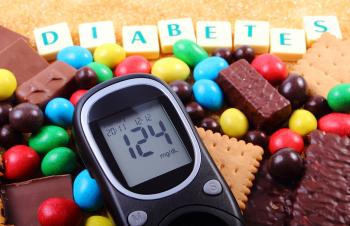5 Signs an Older Adult May Have Diabetes
March 30, 2020

Diabetes is a serious and common disease. It affects more than 30 million people in the United States. When diabetes begins, the symptoms are usually so subtle they go unnoticed. As the disease worsens, symptoms may become noticeable. Knowing what the signs of diabetes are can help you to recognize them in your aging relative so they can receive the medical treatment they need. Below are 5 early signs that an older adult has diabetes.
#1: Feeling Hungry and Tired
Insulin is a hormone needed for the body to take sugar from the blood stream and use it to make energy in cells. When the body doesn’t have enough insulin, cells cannot take in sugar. That can leave the older adult feeling tired and like they have no energy to do daily tasks or things they enjoy. It can also leave them feeling hungry all the time.
#2: Frequent Urinary Tract and Yeast Infections
When blood sugar is high, the kidneys may not be able to filter all the sugar out. This results in sugar getting into the urine. The sugar combined with the warm, moist environment can cause yeast to grow and lead to more urinary tract infections.
#3: Increased Thirst and Urination
Normally, people urinate between 4 and 7 times in a 24-hour period. Diabetes makes people urinate more than that. This happens because the kidneys are working harder in an attempt to filter out the excess sugar. They produce more urine, which also requires more fluids that are taken from the body’s tissues. That leaves the older adult feeling thirsty, and it causes them to urinate more often.
#4: Unusual Sensations in the Hands or Feet
High blood sugar can cause damage to nerves and affect circulation. Both of these things can cause a condition called neuropathy. They older adult might feel sensations in their hands or feet, like tingling, pain, or numbness.
#5: Darkened Patches of Skin
Some people develop dark patches of skin where there are creases or folds, such as on the neck, in the armpits, or on the knuckles. This is a condition called acanthosis nigricans that happens when the cells become resistant to insulin.
If your aging relative does have diabetes, a senior care provider can help them to manage the disease. A senior care provider can prepare meals that better control blood sugar levels and conform to the eating plan recommended by the doctor or dietician. Senior care providers can also remind the older adult when it is time to take medications or check their blood sugar. Senior care providers can even drive your family member to doctor appointments to follow up on their diabetes treatment.
If you or your loved one is looking for Senior Care in Saratoga, CA, please call Familiar Surroundings Home Care.
Santa Clara County: (408) 979-9990
San Mateo County: (650) 353-9777
Santa Cruz County: (831) 480-3990
Sources
https://www.webmd.com/diabetes/guide/understanding-diabetes-symptoms#1
https://www.medicalnewstoday.com/articles/323185.php
https://health.clevelandclinic.org/is-diabetes-sneaking-up-on-you-6-early-signs/


